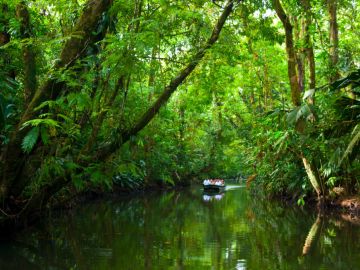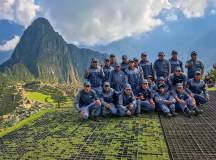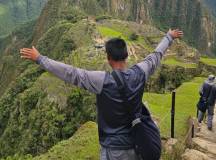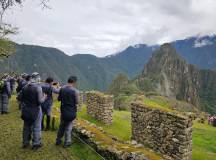The architectural phenomenon that is Machu Picchu attracts a staggering number of tourists from all over the world every single day. Keen trekkers and day-trippers alike flock in their thousands to witness the breath-taking views at the Sun Gate in all its glory.
Porters are the life and soul of the Inca Trail. They are the local folks employed to ensure trekkers’ luggage make it to camp everyday throughout the four-day trek. They tackle gruelling altitudes of above 4000m, treacherous conditions, and a notoriously demanding trail, all the while carrying up to 20kg of luggage on their backs. Without them, most trekkers would simply not complete the renowned trail. As trekkers embark on their final leg of the trek towards the iconic site, ordinarily, porters have already begun their descent to Aguas Calientes, where they will prepare for their next trip up the mountain. This – and the cost of entry – has sadly prohibited most Inca Trail Porters from ever visiting Machu Picchu despite its centrality to local heritage and Peruvian culture. In 2017, Exodus took its first steps in balancing this industry-wide norm.
Our passion for giving back to those who work so relentlessly to ensure our travelers have a once-in-a-lifetime trek is burning brighter than ever. In 2019, we were proud to confirm that 164 of our Inca Trail porters had visited Machu Picchu. Now that tourism in the region has bounced back following the pandemic, we are delighted to offer another 37 porters this experience, funded by our Community Kickstart grant.
Peru really felt the effects of the pandemic, the country’s decrease in tourism and temporary closure of businesses made it increasingly difficult for many families to put food on their tables. Playing our part of harnessing the power of travel to rebuild livelihoods during this unprecedented time, our local operator in Peru partnered with NGO, Medlife, to provide emergency relief for vulnerable communities. Funded by the Community Kickstart Project, our operator worked with Medlife to deliver emergency food parcels to the households of porters and other staff members who have continuously worked hard to guide our clients along the iconic Inca Trail.






